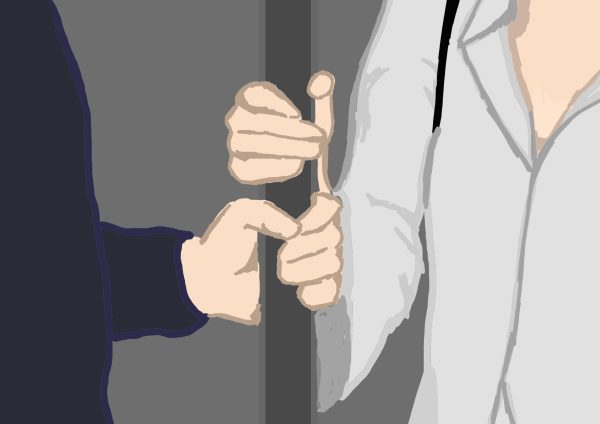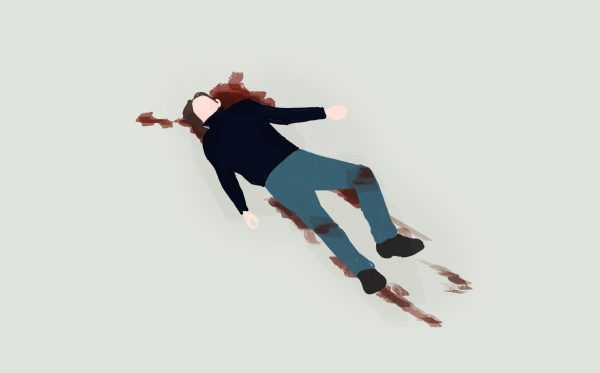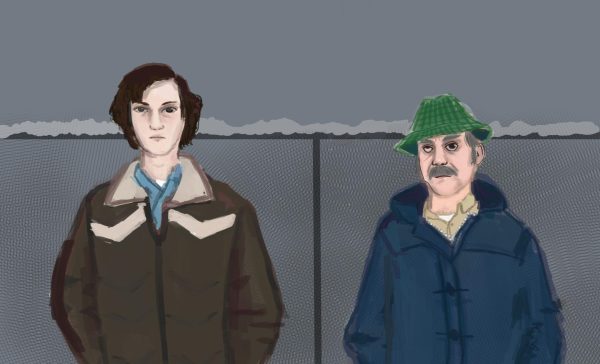Series in review: “Conversations with a Killer: The Ted Bundy Tapes”
February 6, 2019
With Ted Bundy being one of the most—if not the most—recognized serial killers to place their blight upon the world, it goes without saying that almost everything there is to possibly know about the man has been unearthed. Even when there is another facet unveiled about the monster within him, it isn’t surprising, but just another tidbit of information we thought we already knew.
“Conversations with a Killer: The Ted Bundy Tapes” on Netflix has a different objective in mind. Instead of attempting to sell us information that has been public knowledge for 30 years, creator and director Joe Berlinger is fixated on showing us how the world viewed Ted Bundy at the height of his—and it bugs me to say this—popularity.
I’m going to be honest with you, last year I went on a Ted Bundy binge by snatching up every piece of literature and scouring every interview I could find about him. This concerned some co-workers of mine, and I think a close friend thinks I’m plotting the next great American bloodbath. My point, though, and my reason for reviewing this series, is that my interest was rooted in Bundy’s ability to hide in plain sight; to use his charm and intelligence to manipulate people into thinking he was just like everybody else.
Why did this interest me? Because it astounds me that it is possible for someone to create a proverbial fissure in the way they present themselves to the world and the way they really are. Bundy led a double-life, he engineered his appearance to make himself seem normal when he was in fact anything but. He was a con-man, and whether we like it or not, he was skilled at what he did.
Berlinger makes a daring choice in pursuing this side of Bundy. Some may protest that he’s attempting to humanize someone who isn’t worth humanizing. But here’s the thing: Bundy was human. He was the devil incarnate—the very definition of heartless evil, as Polly Nelson of his last defense team put it—but he was human no less, so it shouldn’t be perceived that Berlinger is committing some kind of taboo by attempting to relate him to you or me. No, he doesn’t argue that Bundy was a good man, because he absolutely wasn’t. Rather, he’s demonstrating the atrocities that anyone from our species is capable of enacting.
This docu-series is only four episodes long, with each episode running roughly an hour in length. This allows the pacing to be tight and efficient, and disciplines Berlinger’s narrative to focus only on what is absolutely essential. He juxtaposes historical fact and interviews with the way Bundy wanted himself to be perceived; that is, just like any other person. As I said earlier, this gives us a taste into how the world viewed Bundy back in the late 1970s, and I wouldn’t be surprised if viewers came out of this series feeling some sort of connection with him. Please don’t, by the way.
Speaking of which, this leads me into my only concern with the series—and it’s not even Berlinger’s fault. By portraying Ted Bundy as just like everybody else, this can plant a seed of doubt into impressionable minds.
In other words, people may sympathize with Bundy and start to believe he was just misunderstood and nobody took the time to truly understand him. By doing this, you would be walking into the very kind of trap that someone like Bundy would set up.
“Conversations with a Killer” is a window into the past, and some may get lost and emerge from it under the impression that Berlinger is trying to garner supporters for Ted Bundy. I guess that is the challenge when trying to portray someone as they wanted to be presented while also portraying them as they truly were: people think you’re playing devil’s advocate. 4.5/5





































































